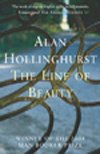Ian Rankin - "Blood Hunt"
![['Blood Hunt' - Ian Rankin]](http://4.bp.blogspot.com/_55wYOeQHyII/R423jaOHMAI/AAAAAAAAAWg/f4TxHpuS8oQ/s400/bloodhunt.jpg) Over the Christmas holidays in England, I stumbled across Pa Rhino's secret stash of Ian Rankins. No-one loves a thriller as much as yours truly and I'd heard great things about this author, particularly his Inspector Rebus series, so I decided to give him a whirl. Unfortunately I got a little bit distracted by the black and red gloss of the cover and failed to read the small print (my italics). If I HAD, I would have seen that a) this was Ian Rankin writing as "Jack Harvey" and b) that the hero wasn't Rebus at all but a former SAS man called Gordon Reece. They're always ex-SAS, have you noticed that? Tough, disciplined but flawed. Everyman and Superman in camouflage pants. It's a genre all of its own. Thank goodness Rankin is a decent enough writer and, as far as I can tell, NOT ex-SAS himself because at least we're spared the reams of endless prep detail that passes for plot in some of these novels (thank you Andy McNab). You know what I mean, all that packing a plastic bottle to pee in while on surveillance duty and endless paragraphs about yomping for miles in the nude. Here's the story: Reece's penniless (natch) freelance hack brother mysteriously commits suicide near San Diego while investigating links between agrichemicals and - wait for it - Mad Cow disease. Still with me? Reece, now running a sort of weekend soldier Outward Bound course in Scotland, heads off to the U.S. to get to the bottom of it all and along the way, bumps heads with an old SAS teammate. Luckily, Rankin is about as interested in the agrichemicals storyline as I was and, after one very dry chapter, soon lets it peter out to become more of a Renaissance revenge drama between former squadron mates. But the tale is not without its flaws. We're told that Reece suffers from a pink "killing mist" that has to be kept under control using medication. Until about three-quarters of the way through the novel where, even though he hasn't had his meds for quite a while, all references to it disappear despite the fact he's killing people left, right and centre. What was all that about then? The baddies aren't really bad enough. The author tells us this himself (I suspect this is because he isn't convinced about the agrichemicals storyline either) and nothing really happens to stop them wreaking their chemical mischief. But whatever, I can even let that pass. What is slightly more difficult to forgive is the appearance in the final pages of a Native American on a killing mission in the Scottish Highlands. Apart from some hackneyed stuff about him sniffing the wind and being good at following a trail, he appears to serve no purpose whatsoever, and unlike the others who all come to a sticky end, he merely gets bored of the whole business and walks away. Walks away where? What's a Native American going to do in Scotland? Baffling. That said, I did actually rather enjoy the whole thing. Rankin may not be a plotting genius but he's good at keeping the story rolling along and the writing's good enough that you don't find yourself cringeing too often. Anyway, I've now started on the Rebus series (set in Edinburgh but no Native Americans spotted yet) so I'll keep you posted.
Over the Christmas holidays in England, I stumbled across Pa Rhino's secret stash of Ian Rankins. No-one loves a thriller as much as yours truly and I'd heard great things about this author, particularly his Inspector Rebus series, so I decided to give him a whirl. Unfortunately I got a little bit distracted by the black and red gloss of the cover and failed to read the small print (my italics). If I HAD, I would have seen that a) this was Ian Rankin writing as "Jack Harvey" and b) that the hero wasn't Rebus at all but a former SAS man called Gordon Reece. They're always ex-SAS, have you noticed that? Tough, disciplined but flawed. Everyman and Superman in camouflage pants. It's a genre all of its own. Thank goodness Rankin is a decent enough writer and, as far as I can tell, NOT ex-SAS himself because at least we're spared the reams of endless prep detail that passes for plot in some of these novels (thank you Andy McNab). You know what I mean, all that packing a plastic bottle to pee in while on surveillance duty and endless paragraphs about yomping for miles in the nude. Here's the story: Reece's penniless (natch) freelance hack brother mysteriously commits suicide near San Diego while investigating links between agrichemicals and - wait for it - Mad Cow disease. Still with me? Reece, now running a sort of weekend soldier Outward Bound course in Scotland, heads off to the U.S. to get to the bottom of it all and along the way, bumps heads with an old SAS teammate. Luckily, Rankin is about as interested in the agrichemicals storyline as I was and, after one very dry chapter, soon lets it peter out to become more of a Renaissance revenge drama between former squadron mates. But the tale is not without its flaws. We're told that Reece suffers from a pink "killing mist" that has to be kept under control using medication. Until about three-quarters of the way through the novel where, even though he hasn't had his meds for quite a while, all references to it disappear despite the fact he's killing people left, right and centre. What was all that about then? The baddies aren't really bad enough. The author tells us this himself (I suspect this is because he isn't convinced about the agrichemicals storyline either) and nothing really happens to stop them wreaking their chemical mischief. But whatever, I can even let that pass. What is slightly more difficult to forgive is the appearance in the final pages of a Native American on a killing mission in the Scottish Highlands. Apart from some hackneyed stuff about him sniffing the wind and being good at following a trail, he appears to serve no purpose whatsoever, and unlike the others who all come to a sticky end, he merely gets bored of the whole business and walks away. Walks away where? What's a Native American going to do in Scotland? Baffling. That said, I did actually rather enjoy the whole thing. Rankin may not be a plotting genius but he's good at keeping the story rolling along and the writing's good enough that you don't find yourself cringeing too often. Anyway, I've now started on the Rebus series (set in Edinburgh but no Native Americans spotted yet) so I'll keep you posted.







